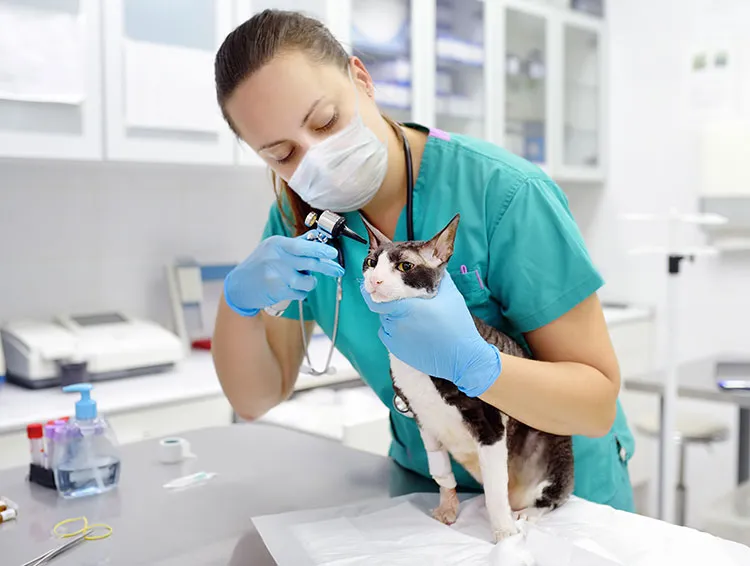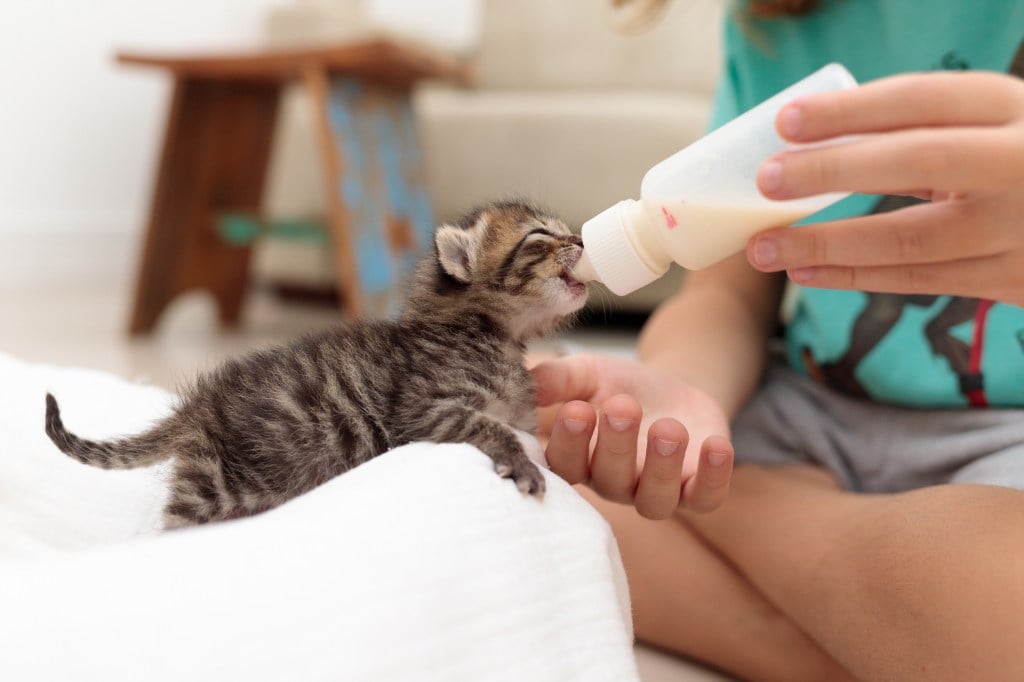Key Takeaways
- Giardiasis and coccidiosis are parasitic infections in the intestinal tract.
- These conditions are common in kittens during the weaning stage.
- Signs of this kind of infection are diarrhea and weight loss.
- Oral medications and intravenous fluids are used to treat the infection.
- Good kitten hygiene and reducing stress for young kittens can reduce infection risks.
Table of Contents
Kittens are often susceptible to illnesses that healthy, adult cats can fight off because their immune systems have not yet fully developed. Giardiasis and coccidiosis are parasitic infections of the intestinal tract, which are fairly common in kittens, particularly during the weaning stage.
What are Giardiasis and Coccidiosis?
Both infections are caused by intestinal parasites that can be transmitted through infected feces, exposure to infected animals or tissue, or through environmental contamination. The infection can also be passed from an affected mother to her nursing kittens through milk. They are more specifically referred to as protozoan parasites, and Giardia is actually zoonotic. This means it may transfer from cats to humans and cause similar infections in both species. After ingestion of the immature parasitic cysts, they travel through the gastrointestinal tract, mature, and become localized to the intestine, where damage to the lining occurs. This damage can result in malabsorption and inflammation within the intestine. The parasites can be detected through microscopic examination of a stool sample.
Signs and Symptoms of Infection
The main clinical signs of infection include diarrhea and weight loss. With coccidiosis, diarrhea is usually watery and may contain blood or mucus. Giardiasis is more commonly recognized by malodorous diarrhea containing mucus or fat due to malabsorption. Both infections may cause occasional vomiting or fevers. Because of the large volume of water loss that occurs, dehydration is a serious concern that should be addressed immediately. If you notice any of these clinical signs, schedule a veterinary visit to ensure your kitten receives prompt medical attention.
Treatment of Infection
To eliminate the infection, your veterinarian will prescribe appropriate oral medications. In severe cases, hospitalization on intravenous fluids may be needed for rehydration. Because risk for re-infection is high, disinfecting the litterbox and other areas of contact are necessary. Your veterinarian can check another stool sample after treatment to ensure the infection is gone.
Prevention of Infection
Practicing good hygiene and reducing stressful conditions for young kittens can decrease the risk of infection. Keeping infected kittens isolated can prevent transmission between animals within the same household. Bathing can also help to remove any lingering parasite cysts from the hair coat.
Most kittens will respond well to treatment and regain their health. As their immune systems become stronger, they will be less susceptible to these parasites.
The content is not intended to be a substitute for professional veterinarian advice, diagnosis, or treatment. Always seek the advice of your veterinarian or other qualified health provider with any questions you may have regarding a medical diagnosis, condition, or treatment options.







